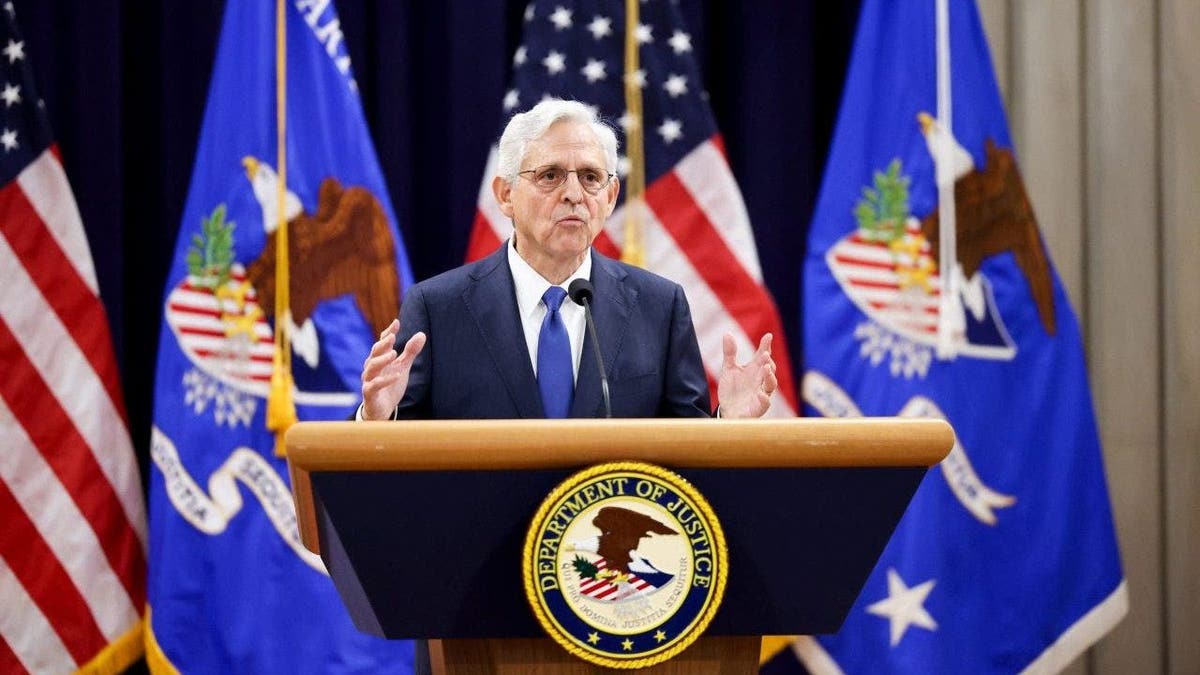
The Justice Department once green lit the very election reform law it is now suing Virginia over, a measure aimed at removing noncitizens from the commonwealth’s voter rolls, Fox News Digital has learned.
The DOJ filed suit Oct. 11 in Alexandria federal court, alleging the state, its board of elections and Elections Commissioner Susan Beals violated a federal law by carrying out an executive order by Gov. Glenn Youngkin. The order directed municipal and/or state officials to cull names of people who are “unable to verify that they are citizens” to the Department of Motor Vehicles for voter registration purposes.
FLURRY OF PRE-ELECTION LEGAL CASES IN NOW ‘STANDARDIZED’ STRATEGY, EXPERTS SAY
Youngkin told Fox News Digital the order he issued in August simply followed a rule put in place in 2006 by then-Democratic Gov. Tim Kaine and approved by the DOJ. But with the November election just weeks away, the agency is now saying it violates a provision of the National Voter Registration Act which requires any voter roll maintenance to be completed before the 90-day window prior to an election.
“[W]e now know that the Virginia law was reviewed and expressly approved by the DOJ civil rights division,” Youngkin said. “Now, after being applied for 18 years by both Democrat and Republican governors, with just 25 days before the presidential election, the Biden-Harris DOJ sues Virginia: Ensuring Virginia’s voter rolls do not include non-citizens is constitutional, it’s the law in Virginia and it’s common sense.”
YOUNGKIN: EDUCATION IS THE BEDROCK OF THE AMERICAN DREAM
Youngkin’s order cited Virginia code 24.2-439, requiring government registrars to cancel noncitizens’ voter registrations deemed to have been sought under false pretenses. It also cited Virginia Code 24.2-1019, requiring registrars to immediately notify their county or city prosecutor of such situations.
At least 165 election-related lawsuits have already been filed across the country, with the majority focused on issues such as who should be eligible to vote, how ballots are cast and counted, and how to ensure election security and protect against alleged voter fraud. Legal analysts say they doubt that any of these lawsuits will have a protracted impact on the 2024 election and describe the nature of the claims as fairly standard fare, especially during the more than two decades since George W. Bush fended off Al Gore and a mountain of legal challenges to win the 2020 presidential election.
The DOJ alleged in its lawsuit that actions resulting from the August order violated the federal 90-day window. However, Virginia officials maintain their actions target self-reported eligibility discrepancies and were not the kind of systematic voter-roll purging that would violate the Quiet Period provision.
An internal Richmond memo obtained by Fox News Digital asserted that the established process for removing noncitizens from voter rolls has taken place under Democratic and Republican governors since Kaine, now a senator, signed the law in 2006.
The federal Quiet Period cited by DOJ is “not relevant” to the Commonwealth’s policy, the memo stated, adding that individuals also have the two-week window to affirm citizenship before they are stripped from the rolls, so disqualification is not automatic.
If a person believes they were wrongly removed from the rolls, Virginia has long offered same-day voter registration at the polls.
In Kaine-era official correspondence obtained by Fox News Digital, an official in the Virginia attorney general’s office wrote the George W. Bush Justice Department asking for approval of the new law.
Two months later, in December 2006, an official in the Civil Rights Division’s Voting Section wrote back that the U.S. attorney general “does not interpose any objections to the specific changes,” although it added that the feds’ lack of objection does not rule out future injunctions against the law’s enforcement.
CLIMATE PROTESTERS INTERRUPT YOUNGKIN’S 9/11 SPEECH
Sen. Timothy M. Kaine, D-Va. (Greg Nash-Pool/Getty Images)
The process for removing an ineligible voter described by the law only begins when a person who files for a driver’s license or other government document attests that they are a noncitizen.
From there, the Department of Motor Vehicles shares that information with the state Department of Elections, which matches the information with the county or independent city’s registrar.
The individual is then notified that they are ineligible and is given 14 days to prove their citizenship. If they do not, they are then notified that they will be removed and are ultimately removed, the source said.
Virginia reportedly removed more than 6,300 individuals from their voter rolls since the order was signed.
In a statement after the lawsuit was filed, Youngkin called the legal action “unprecedented” and said he was simply assuring a law signed in 2006 by Kaine, who is running for reelection to the U.S. Senate this year, was being followed by counties and independent cities.
In a statement following the filing of the DOJ’s lawsuit, Youngkin staunchly defended his order.
“Americans will see this for exactly what it is – a desperate attempt to attack the legitimacy of the elections in the Commonwealth, the very crucible of American Democracy,” he said. “I will not stand idly by as this politically motivated action tries to interfere in our elections, period.”
However, at the DOJ, Assistant Attorney General for the Civil Rights Division Kristen Clarke said that culling voter registrations this close to election day potentially places qualified voters “in jeopardy of being removed from the rolls and creates the risk of confusion for the electorate.”
“Congress adopted the National Voter Registration Act’s Quiet Period restriction to prevent error-prone, eleventh-hour efforts that all too often disenfranchise qualified voters,” Clarke said in a statement.
As a result of Youngkin’s order, more than 1,000 registrations in two major Washington, D.C-area counties were canceled, according to local reports.
CLICK HERE TO GET THE FOX NEWS APP

U.S. Attorney General Merrick Garland speaks at the Department of Justice (DOJ) in Washington, DC, US, on Thursday. The DOJ is preparing charges against Iran over its efforts to influence the 2024 election cycle. (Photographer: Ting Shen/Bloomberg via Getty Images)
Loudoun County, a formerly-red bastion now tinted blue due to exurban sprawl from the nation’s capital, culled 98 names. Eastward along US-50, heavily-Democratic Fairfax County removed 985 and is transmitting them to the local prosecutor and Attorney General Jason Miyares to probe any potential lawbreaking, according to the local ABC affiliate.
In July, Kaine reiterated that voting is a right reserved for U.S. citizens.
Last week, a spokesperson for the 2016 Democratic vice presidential nominee said “just as we want to block non-citizens from voting, we need to keep eligible voters from being purged from voting rolls, particularly just weeks from an election.”
“Senator Kaine is focused on making sure that every eligible Virginian has the opportunity to vote in this critical election.”
Meanwhile, former President Trump scorched the lawsuit as evidence of DOJ “weaponization” and praised Youngkin’s “important work” to protect the veracity of voter rolls.
